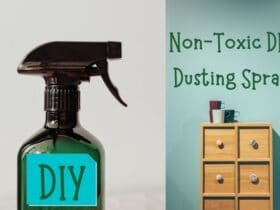After a long tiring day, when you walk into your house, you smell gas in the premises, but that doesn’t hint at any leakage source. What would you do in such a situation? The piece of content will discuss the probable reasons triggering the particular situation and how to resolve it effectively.
Steps to be undertaken when the apartment smells like gas but no leak can be detected
1. Allow proper ventilation in your house
As soon as you detect a gas smell in your home, make sure that you ventilate the space. Open all the doors and windows to allow a passage of fresh air into the apartment. Either way, if there is no opening enough to ventilate, don’t delay to call a professional, as it might risk your life! The action would help to get rid of the gas smell with easy recognition of the leakage source.
2. Try to identify the leakage
After ventilating the flat, find out leaks if any. You must turn off all the gas lines and see if the smell is yet coming or not. If the situation doesn’t improve, know that there is a leak in your gas line. In such a case, immediately call the professional for redressal of the same.
3. Check all the appliances in your house
Couldn’t find any leak although your house smells like gas? Check all your appliances to switch them off and ensure there is no gas leakage. If you have a gas stove, check the connection between the stove and the gas line.
4. Come out of the apartment with your family and pets
Is the gas smell appearing very strong? Make your way out of the house without further delay, evacuating all your loved ones.
5. Get in touch with the gas company
After evacuation from the house, call the gas company to ensure foolproof safety.
Precautionary steps to avert gas leakage in future
To stay safe beforehand, maintain all the electrical appliances while knowing how to turn off the gas line at home without anyone’s help. Once the issue has been resolved, take enough precautions to prevent it from happening again.
Why does my house smell like gas but no leak can be spotted?
The gas smell can arise due to several potential reasons:
- The house in the neighborhood might have any gas leakage condition.
Beware of your surroundings.
2. Loose connection between the gas stove and the gas pipe.
You must check every appliance’s connections and make sure they are turned off. If that too doesn’t resolve the issue, reach out to a professional for help.
3. Sewage drainage problem
If the smell isn’t equally strong in multiple areas, it might be due to a sewage drainage problem that might smell like natural gas.
4. The heating machine was infested with bacteria
At times, bacteria grow in the heating furnace releasing sulfuric gas.
5. Bacteria formation inside a well
In rural areas where wells are a common source of water, one might experience a sulfur-like smell due to bacteria growth inside. This condition can be common in summer as the water temperature stays warmer. However, in such a case, the water must be checked by a professional for treatment.
6. Blockage in the garbage chute
Are you staying in a flat? Your garbage chute might have been blocked, thereby emitting sulfuric gas.
7. Malfunctioning water heater
Are you smelling sulfur from the water heater when taking a shower or at a time when hot water is passing through? A malfunctioning anode can cause such a problem. You must repair the heater without further wait.
8. Unused sink
A curve in the drainpipe below the sink contains water even when it’s not being used which helps to drain the sink properly by separating the home and sewer system. The water residue can evaporate when the sink isn’t used for a longer period, spreading sewer vapors in the air which smells like strong sulfur.
The house smells like gas but has no leak! What can be the reasons behind them?
If there is a gas smell in your home, it might be due to several other stuff that brood a gas like smell, such as rotten eggs, bleach, sewage, burnt plastic materials, or skunk.
6 signs of a natural gas leak in the house
- Hissing or whistling sound near a natural gas line
- Dirt or water is mixing with air near the gas connection
- The smell of rotten eggs near the gas pipeline
- Dying or wilting plants on the premise
- Increase in gas usage
- Presence of air bubbles in still water
Given the situation, don’t try to resolve the issue yourself and vacate the space at the earliest possible time while requesting professional help.
Can carbon monoxide detectors identify gas leaks?
If there is gas leakage when the furnace is in use, it might cause CO poisoning, which is why a CO detector must be kept at home. Also, it’s important to be familiar with the arising symptoms from the situation, such as headache, confusion, nausea, and dizziness. Dial 911 in an adverse scenario.
The gas smell can only be felt by you and not others?
It’s because of smell sensitivity, which varies from person to person.
What types of gas smells can you experience?
Ideally, you can smell two types of gases, which if detected, would be easy to tackle. They are namely carbon dioxide and sulfur. Sulfur is less toxic and harmful than CO2, but that doesn’t indicate zero harm when sulfur enters the body. It can cause diarrhea, irritation in the eyes and throat, excessive coughing, and itchiness in the lungs. To avoid any serious situations, one must clear the sewage passages, sinks, and waste outlets regularly.
Safety measures when the house smells like gas but no leak can be figured out-
- Switch off all flammable objects so that there is no ignition or electrical spark.
- Open all the windows and switch on the fan to diffuse the gas smell.
- When the propane smell persists, vacate the house right away.
- Turn off the main valve of the gas supply on the propane cylinder.
- Wait outside until the issue is duly addressed by the technician deployed on the spot.
Lastly, precaution always comes unparalleled in the context of safety!









Leave a Reply
View Comments